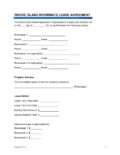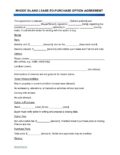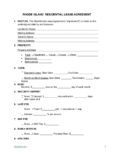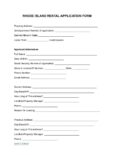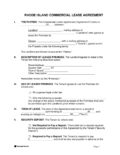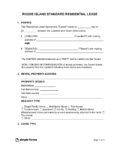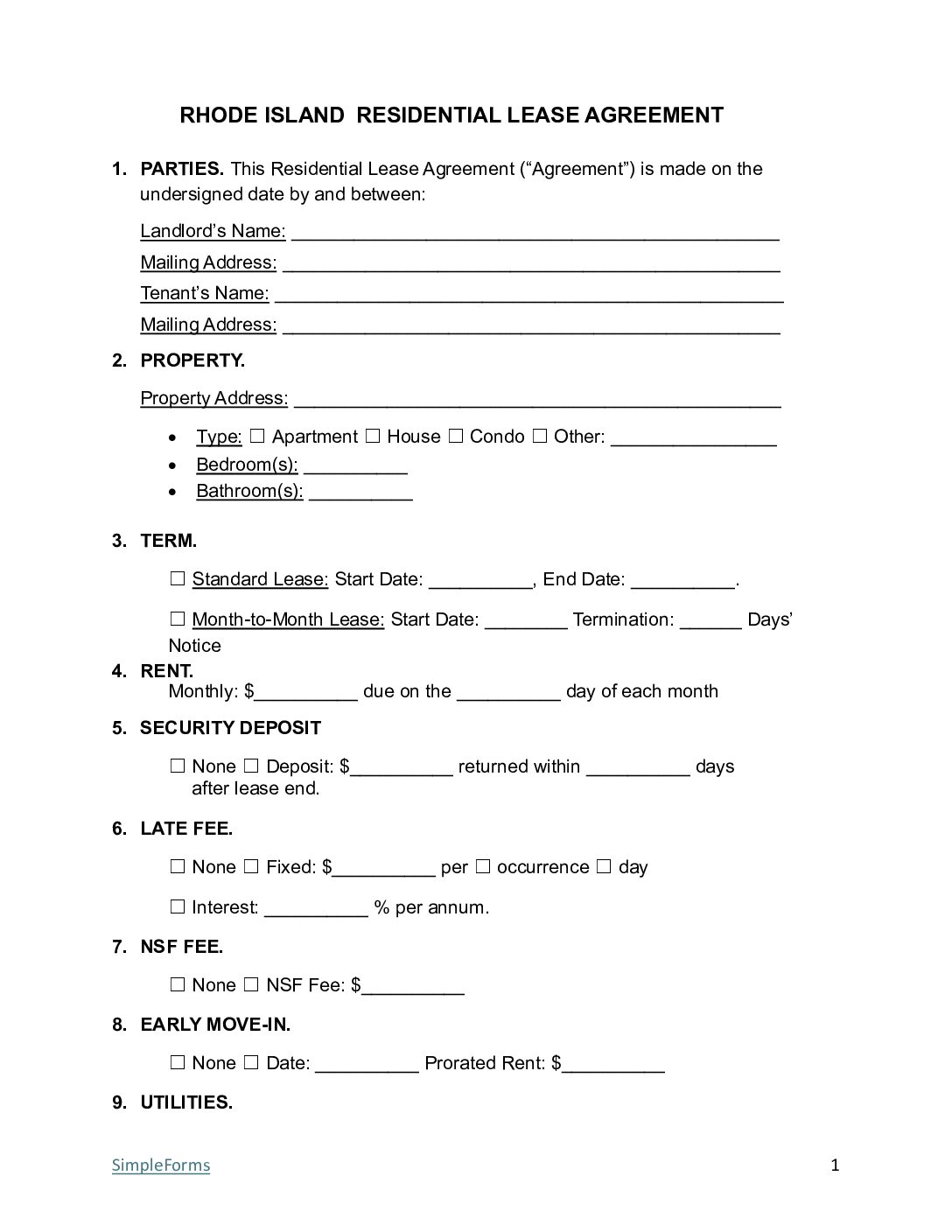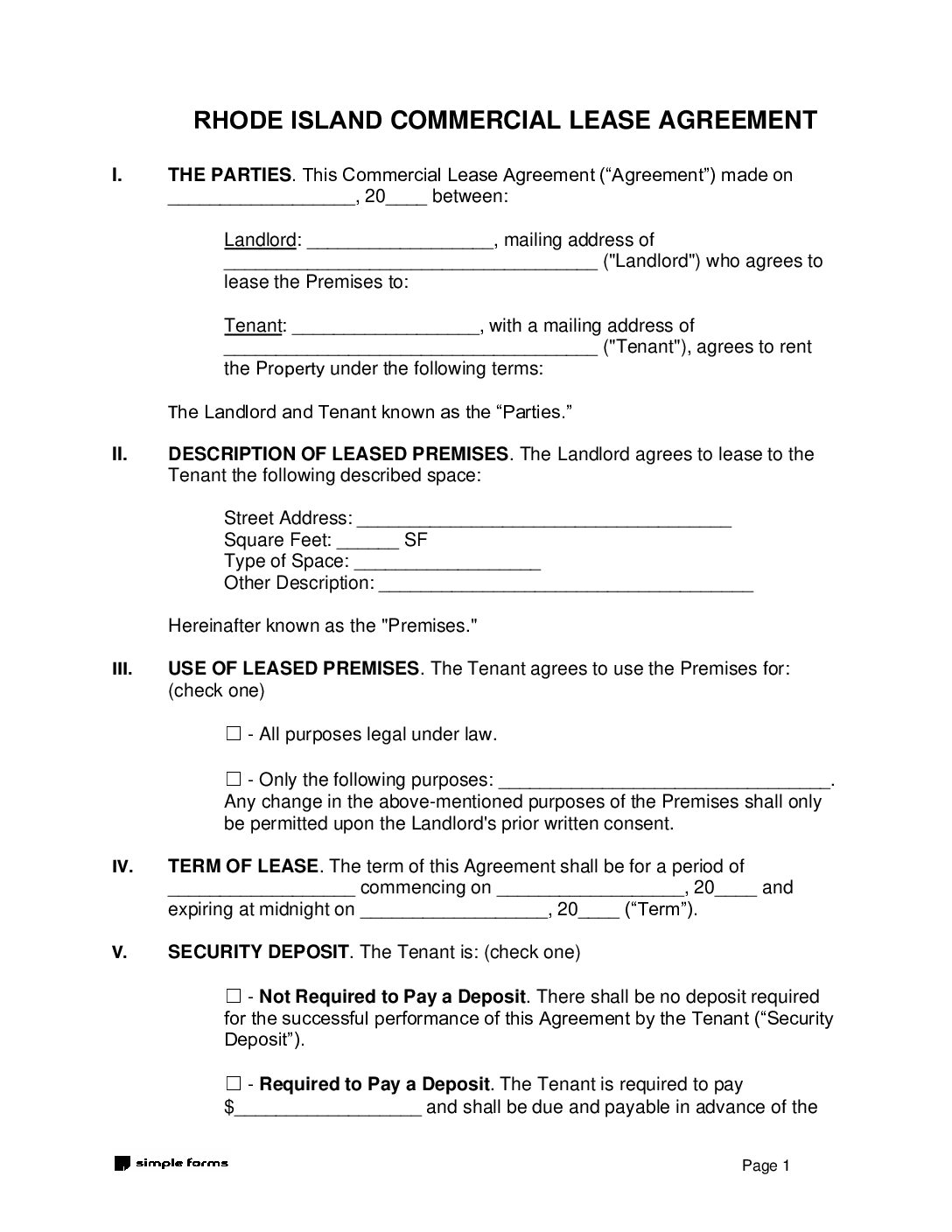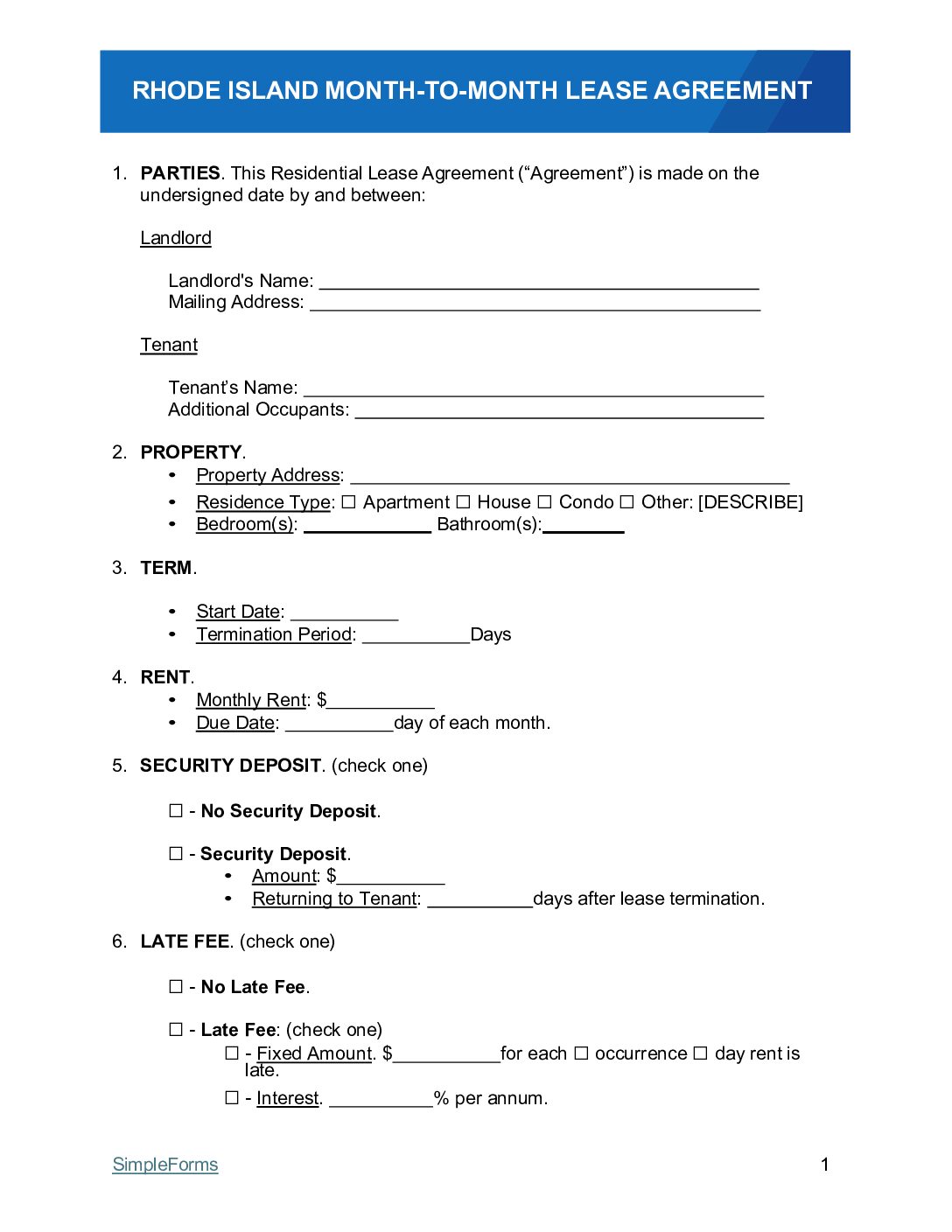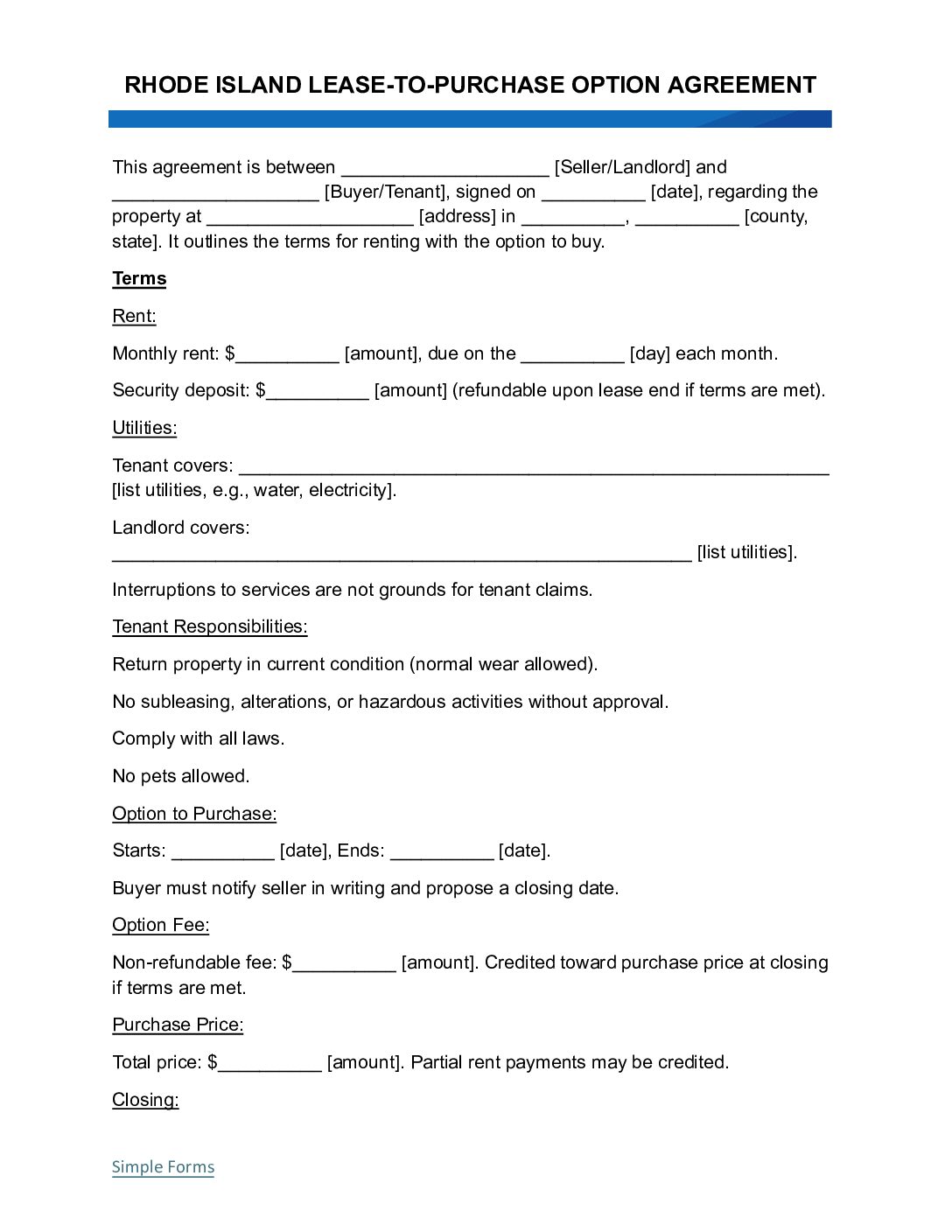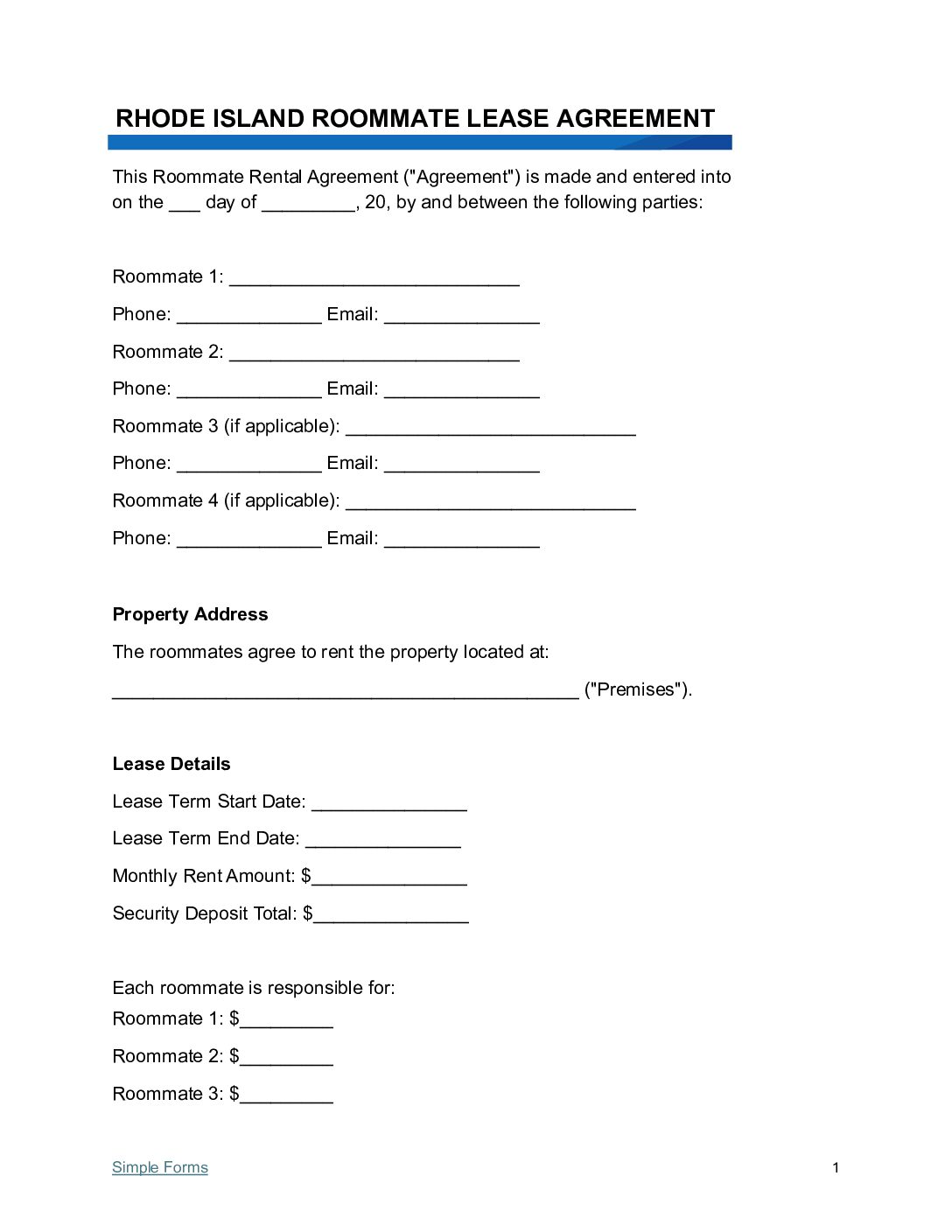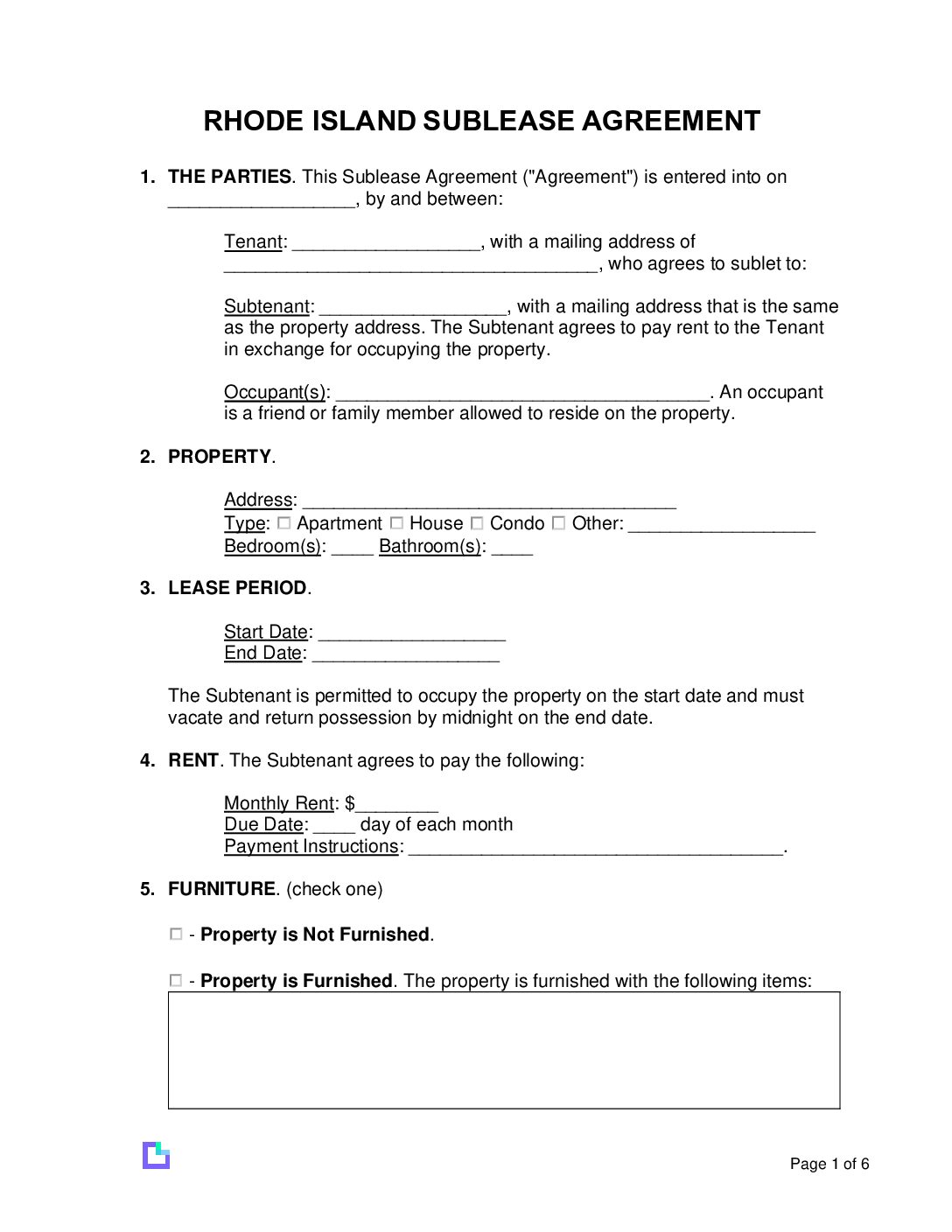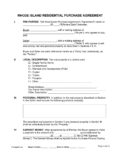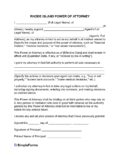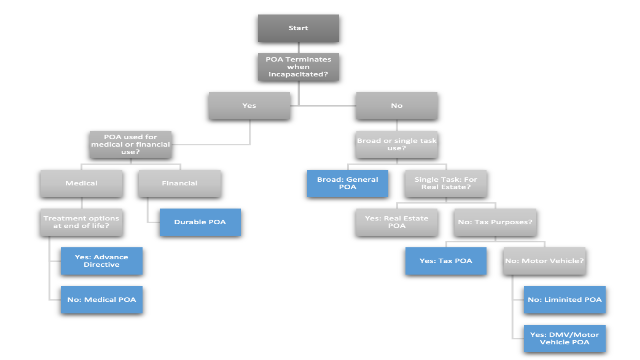RI
Rhode Island Rental Application Form– A rental application is a form potential tenants fill out to apply for a property. Landlords and Property Managers use this document to gather information and decide if the applicant is a good fit. Once approved, both parties can sign the Rhode Island Residential Lease Agreement Template.
🏠 Rhode Island Tenant Rights & Landlord Obligations
Tenant Rights
- Right to habitable living conditions
- Privacy rights and proper notice for entry
- Protection from discrimination
- Timely return of security deposits
- Right to organize tenant associations
Landlord Obligations
- Maintain property in habitable condition
- Make necessary repairs promptly
- Provide required disclosures
- Follow proper eviction procedures
- Respect tenant privacy rights
Required Disclosure Forms in New Jersey – 4
Rhode Island landlords must provide specific disclosures to tenants as mandated by state law. Failure to provide these disclosures can result in legal complications and potential liability.
- Lead-Based Paint Disclosure Form – If the property was built before 1978, landlords must notify tenants about potential lead-based paint potential hazards.
- Code Violations (if any)- Landlords must disclose to tenants if there are any outstanding code violations against the property. [Truth-in-Renting Act]
- Landlord/Owner Identification – Landlords must share the names of property managers, property owners, and anyone authorized to receive legal notices, to adhere to the Landlord Identity Law.
- Security Deposit Information – Banking details and return procedures. Landlords must disclose where security deposits are held, applicable interest rates, and the process for returning deposits after lease termination.
Sample Rhode Island Residential Lease Agreement Template
Frequently Asked Questions
Is a rental application fee legal in Rhode Island?
Yes, landlords in Rhode Island can charge reasonable application fees to cover the cost of background checks and credit reports. However, the fee should be limited to actual costs incurred.
How long does a landlord have to respond to a rental application?
While Rhode Island doesn’t specify a timeframe, most landlords respond within 1-3 business days. It’s recommended to follow up if you haven’t heard back within a week.
Can a landlord reject an application based on income?
Yes, landlords can set income requirements (typically 2.5-3 times the monthly rent) as long as these standards are applied consistently and don’t discriminate against protected classes.
💵 Rental Application Fees
As of January 1, 2024, Rhode Island law prohibits landlords, brokers, property managers, or designees from charging any rental application fee—including background checks, credit reports, screenings, or administrative fees. [1]
✅ Exceptions — Pass‑through Costs Only
Landlords may only charge applicants for the actual cost of an official state criminal background check or credit report if the applicant does *not* provide their own reports dated within 90 days. If the landlord charges for these costs, they must provide a copy of the report to the applicant. [1][2]
📜 Tenant Copy Requirement
If an applicant is charged for a background or credit report, the landlord is required to furnish the applicant with a copy of that report. [1]
💰 Security Deposit Limit
Under Rhode Island law, landlords may charge a security deposit **up to one (1) month’s rent** only. [3]
🚫 Unauthorized Fees & Scams
Despite the law, some landlords attempt to charge “application” or viewing fees. Tenants report:
“Application fees are pretty common, but that’s for once you’ve seen the place…and it’s now illegal for landlords to charge application fees.”
And:
“Landlords are now charging $35 background checks…Should not be passed on to tenants.”
Any unexpected fees charged during the application process, may violate state law — Rhode Island’s Attorney General has taken enforcement actions against non-compliant landlords.
Sample Rhode Island Rental Application Form
🔍 Legal References
- R.I. Gen. Laws § 34‑18‑59 (prohibiting application fees; allowing pass‑through costs with tenant-supplied 90‑day reports)
- Partridge Snow & Hahn summary (explaining effective date and exceptions)
- Tenant handbook interpretation (security deposit = 1 month’s rent)
When Does the Rhode Island Commercial Lease Agreement Become Legally Binding?
The Commercial Lease Agreement becomes legally binding when both parties sign the contract and the buyer gets the notice that the seller has accepted the deal. The buyer can get the notice in-person, by phone, and/or email.
Sample Rhode Island Standard Commercial Lease Agreement Template
By Type (6)
| Rhode Island Residential Lease Agreement Template – Used for renting a property for personal living purposes. Download: PDF | Word (.docx) |
|
| Rhode Island Commercial Lease Agreement – Used for business purposes/renting space for a company to operate its business activities (retail, office, industrial). Download: PDF |
|
| Rhode Island Month-to-Month Lease Agreement – Also referred to as a month-to-month or “at-will” lease, this rental agreement has no fixed end date and automatically renews each month. Download: PDF | Word (.docx) |
|
| Rhode Island Rent-to-Own Lease Agreement – A lease that grants the tenant the option to buy the property before the lease term expires. Download: PDF | Word (.docx) |
|
| Rhode Island Room (Roommate) Lease Agreement – A contract between individuals sharing a rental property that outlines each roommate’s responsibilities, rent obligations, and shared living arrangements. Download: PDF | Word (.docx) |
|
| Rhode Island Sublease Agreement Template – This lease template allows a tenant to rent out all or part of their leased property to another person while remaining responsible to the landlord. Download: PDF | Word (.docx) |
What the Rhode Island Residential Lease Agreement Form Covers?
This agreement includes the following information for landlords and tenants in Rhode Island:
- Rhode Island Landlord-Tenant Act
- Security Deposit Law
- Lease Termination
- Landlord’s Access to the Property
- Rent Due Date and Late Fees
- Eviction Procedures
- Property Maintenance
- Required Disclosure Forms
- Tenant’s Right to Withhold Rent
Rhode Island Landlord-Tenant Act
Security Deposit Laws
- Maximum Amount – Landlords can charge up to one month’s rent as a security deposit.
- Return Timeline – Security deposits must be returned within 20 days after the lease ends, along with an itemized list of deductions (if any).[2]
Lease Termination Rules for Landlords and Tenants
- Yearly Lease: 30 days’ notice.
- Month-to-Month: 30 days’ notice.
- No Notice: If the rental unit poses immediate health or safety risks.[3]
Landlord’s Access to the Rental Property
Rent Due Dates and Late Fees
- Grace Period – No grace period is mandated by law; it must be specified in the lease.
- Late Fees – Late fees are allowed but must be reasonable and outlined in the lease agreement.[5]
Eviction Procedures and Notices
- Notice to Quit – 5 days for nonpayment of rent; 20 days for lease violations.
- Eviction Lawsuit – Legal actions are initiated under “Summary Possession” in Rhode Island courts.[6]
Property Maintenance Requirements and Utilities
Required Disclosure Forms
- Lead-Based Paint Disclosure Form – If the property was built before 1978, landlords must notify tenants about potential lead-based paint potential hazards, with the lead-based paint disclosure form.
- Code Violations – Landlords must disclose to tenants if there are any outstanding code violations against the property.
- Landlord/Owner Identification – Landlords must share the names of property managers, property owners, and anyone authorized to receive legal notices.
Tenant’s Right to Withhold Rent
Sample Rhode Island Rental Lease Agreement Template
Form Options By Type
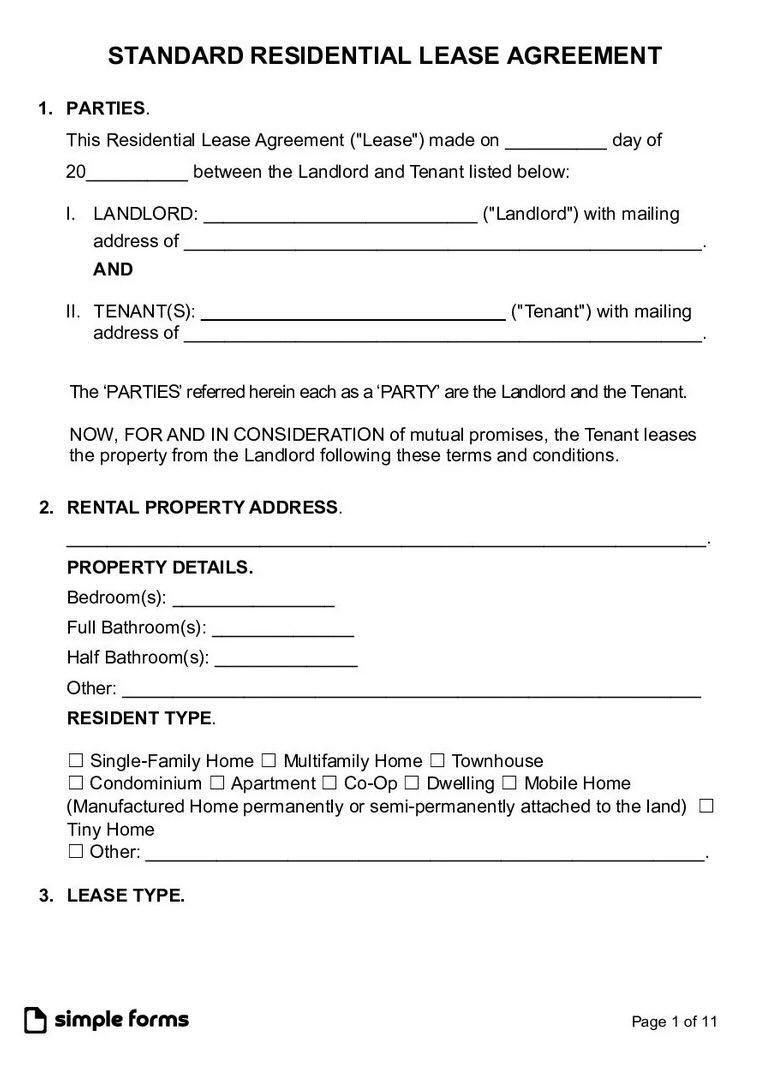 Standard Residential Lease Agreement Standard Residential Lease Agreement
|
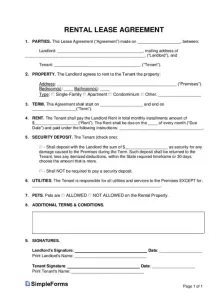 Simple (1-Page) Lease Agreement Simple (1-Page) Lease Agreement
|
When does a purchase agreement become legally binding?
The purchase and sale agreement becomes legally binding when both parties sign the contract and the buyer gets the notice that the seller has accepted the deal. The buyer can get the notice in-person, by phone, and/or email.
Rhode Island Residential Purchase and Sale Agreement Sample
https://simpleforms.com/wp-content/uploads/2024/05/Rhode-Island-Residential-Real-Estate-Purchase-Agreement-1.pdf
Signing Requirement ✍️
The Principal must sign the POA document in front of a public notary.
Source: § 18-16-2
What is the Definition of “Power of Attorney”?
Definition by the Uniform Power of Attorney Act:
“A “Power of attorney” is a document that gives an agent the authority to act on behalf of the principal.”
Source: § 102(7)
Power of Attorney Flow Chart 📈
Why use a Power of Attorney POA?
- Plan for the future by using a reliable Power of Attorney form template. You can download the PDF or Word document for free to provide peace of mind for yourself and your loved ones.
- This form covers decisions made on your behalf, estate planning, real estate, the agent or attorney in fact, types of powers of attorney (including durable, limited, and springing), family members, care power of attorney, bank accounts, health care power, and more.
- Use this form to grant power to act on your behalf in financial and real estate matters. It’s essential for ensuring that your wishes are carried out in the future.
Rhode Island Statutory POA Form
RI Statutory Form – § 18-16-2
Law Alert ⚖️
Rhode Island POA Laws – Chapter 18-16: Short Form Power of Attorney Act
Rhode Island PDF Power of Attorney Form: Preview Example
PDF Version: Template Sample
https://simpleforms.com/wp-content/uploads/2024/06/rhode-island-durable-power-of-attorney.pdf
| ← Previous |
